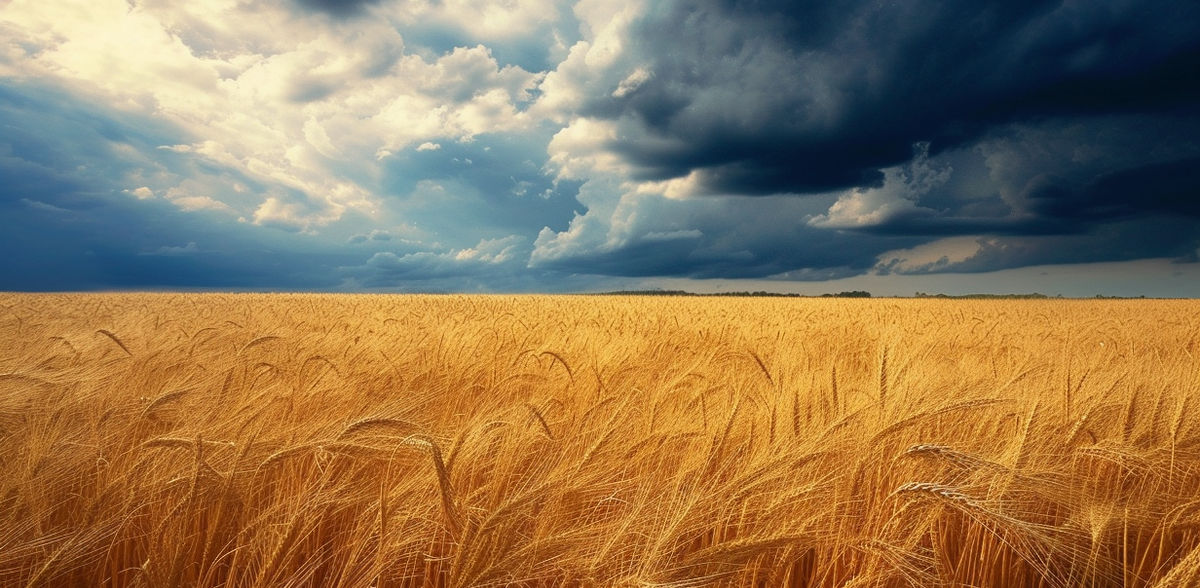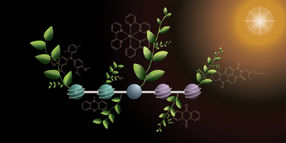How the Russian invasion of Ukraine has impacted the global wheat market
Advertisement
Russia’s invasion of Ukraine in February 2022 caused an immediate disruption in the global wheat market, with serious implications for food prices and global food security. Wheat is a staple commodity in many countries and one of the most extensively traded crops worldwide. Anew paper from theUniversity of Illinois Urbana-Champaign and Texas Tech University examines the long-term impacts of the war in Ukraine on global wheat prices and market responses.
“We present a comprehensive, holistic picture of the global wheat market. Our analysis looks at export-import linkages between individual countries to evaluate how trade and prices have adjusted,” said co-author William Ridley, assistant professor in the Department of Agricultural and Consumer Economics, part of the College of Agricultural, Consumer and Environmental Sciences (ACES) at U. of I.
“At the start of the invasion, everybody was really concerned there was going to be an explosion in wheat prices. We did see a massive spike in prices, but eventually, the market adjusted and price impacts leveled out,” he added.
Global wheat prices jumped by 28% in the early phases of the war, but within a few months, they began to decrease, although they remain 2-3% higher than before the invasion.
Price increases of 2-3% may not seem like a lot, but it comes on top of ongoing global inflation, and it contributes to worsening food insecurity in many poor countries that are already suffering from high prices and inadequate supply of staple foods, Ridley said.
Wheat is grown in at least 97 countries around the world, according to Ridley. But some of the major producers, including China and India, primarily grow for domestic consumption and only a handful of countries supply most of the global market. Ukraine is the world’s ninth-largest wheat producer and fifth-largest exporter, with the majority of exports going to Africa, Asia, and the Middle East.
Ridley and co-author Stephen Devadoss analyzed bilateral trade flows for 42 major wheat-producing and -consuming countries or regions, looking at how changes in Ukraine’s production and exports affected the global wheat market over time.
The invasion caused disruptions in Ukraine’s wheat production as wheat-producing regions in the south and east of the country were under attack. The war has also damaged infrastructure and disrupted transportation, which affected Ukraine’s ability to export to foreign markets.
The Black Sea Grain Initiative, an agreement between Russia, Ukraine, Turkey, and the United Nations, was established to ensure the safe passage of grain from Ukraine through the Black Sea. However, Russia eventually withdrew from the agreement, which has now expired.
Ukraine’s exports to major markets, including Egypt, Indonesia, Bangladesh, Pakistan, and Lebanon, fell dramatically following the invasion. These countries are large wheat importers because of their own limited supply, and they typically received 25% to 50% of their wheat from Ukraine prior to the conflict.
Ridley and Devadoss found other wheat-exporting countries increased their production in response to the higher wheat prices. Ukrainian exports were eventually replaced by other large producers, primarily the United States, Canada, and Australia. Russia also increased their exports substantially.
The results suggest that Russia has exploited the perilous situation to export more wheat at the expense of Ukraine, the researchers noted. The findings also have implications for the design of international food policy.
“Multilateral policies ensuring a stable supply of food and removing Russia's ability to exploit hunger and food insecurity as a geopolitical tool could be effective means to combat their war effort,” Ridley said.
“Furthermore, this situation shows how a localized disruption can have ripple effects on global markets,” he added. “A conflict on the other side of the world is going to affect producers and consumers in the U.S. whether we trade with these countries or not.”




































































